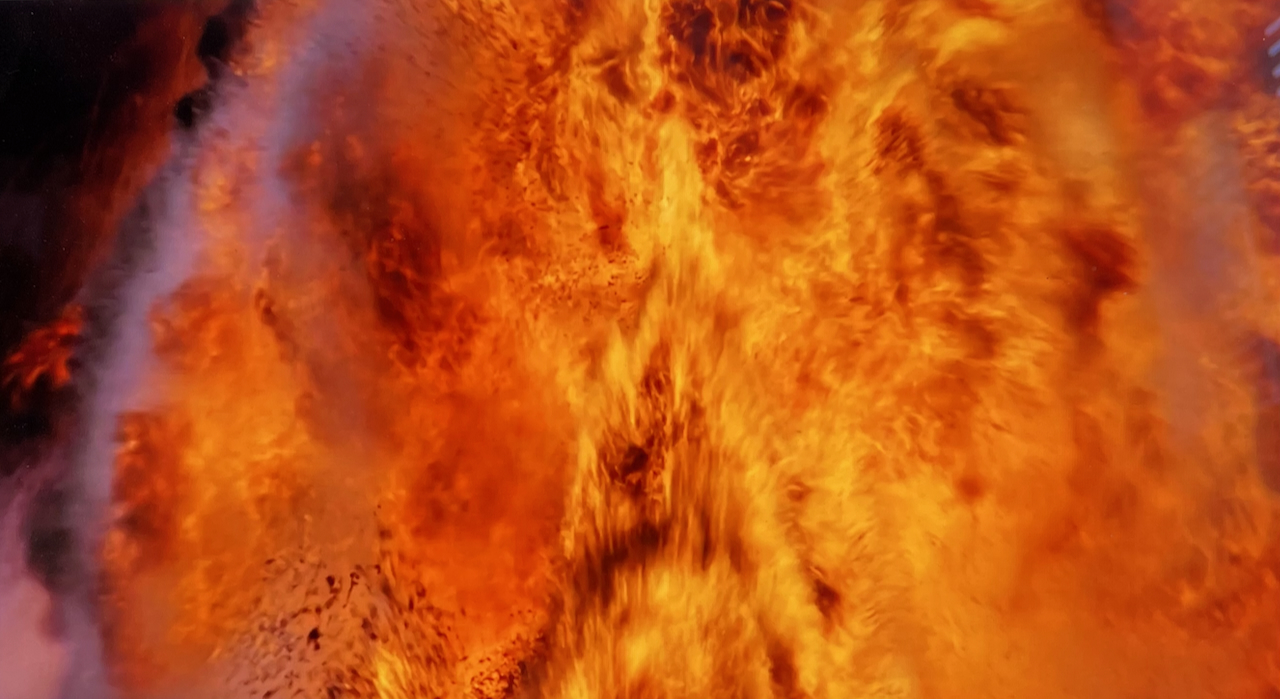
A still from Werner Herzog: Radical Dreamer, now streaming on Amazon Prime.
Writing is a vector to approximate The Mystery. If a writer, poet, filmmaker, or other artist has the luck to work over time, we call their multiple vectors a body of work, and it becomes the work of scholars and YouTubers to say what it all meant and why it is a single thing, when it can seem to be different ones.
The new documentary Werner Herzog: Radical Dreamer, by director Thomas von Steinaecker, does not bring much new to the understanding of Herzog and his work. In fact, it rehashes the usual tropes of the director known popularly as much for his voice and manner as for his films. Several well-known actors and directors are interviewed, to little effect. Actor Carl Weathers, of all people, who appeared in The Mandalorian with Herzog, raves and says Herzog is (somehow) like Darth Vader. If Herzog did not feed his pop-culture persona (and correspondingly his bank account) so willingly, this would be an insult of omission.
Other interviewees might have had more to say of value but are not given the time. Lucki Stipetic, Herzog’s brother and longtime producer, especially seems open to talk about funding and the processes of making the films, and his calm, deadpan manner cuts through Herzog’s own sometimes ghoulish Romanticism. Herzog’s third wife is fiercely protective of his work and reputation; I would love to hear more from her. Interestingly she acknowledges that audiences in the United States and Europe see different Herzogs, due to unreconciled vectors of fiction and nonfiction in his body of work.
Herzog is not my “favorite” director, but I have followed his art and career with interest—less for his motifs of ecstatic madness than for his fictional dramas of characters who self-assign impossible goals, and his (often) nearly-nonnarrative documentaries that reveal stories wherever one looks, which itself is a nearly impossible goal. Even as a fan it is sometimes hard to know if he is being brilliant in this, banal, or manipulative.
The documentary delves into this a bit—Herzog adding ice skaters on a frozen lake in his own documentary, when none were there, for their dreamlike quality—and combines it with contextless images from a few of his many films, until I felt the thesis of Herzog as radical dreamer, not just understood it intellectually. It is the documentary’s main achievement to show what the vectors of a life’s work have tried to approximate.
Herzog also has a MasterClass of several hours I have been working through. To be fair to von Steinaecker, Herzog is often not particularly articulate about himself—he gets too excited and has a kind of emotional burden of knowledge that he almost physically pushes before him while trying to speak—and at least in the early MasterClass sessions does not reveal himself to be much of a teacher. He reads aloud from his favorite nonfiction book, for instance, then does little more than wave his hand as if to say, Well, there it is, obviously.
But I know that book, The Peregrine, by J.A. Baker, and it is both a marvel of direct observation without commercial agenda and very much in the manner of Herzog’s filmic non-fiction. Both artists make me think that one of the bigger questions now might be: When AI has taken our jobs or they become otherwise obsolete, and corporations have stolen most of our souls and community, what will the poor writer do with his vectors, like cat scratches on a door frame?
Better articulate the odd and sometimes intense dream of being alive.
